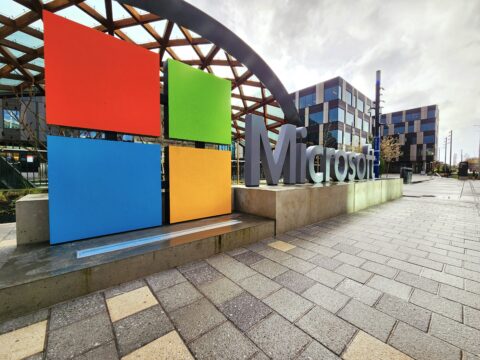Contents
Are you considering entering the realm of Forex Brokers in UAE? Or perhaps you’re a seasoned trader seeking the best brokerage options in this bustling financial hub. Moreover, UAE, known for its thriving economy and strategic location, has become a magnet for Forex enthusiasts. In this guide, we’ll explore the top 10 Forex brokers in UAE, providing you with valuable insights to help you make informed decisions. So, let’s dive in!
Our Review Process For Forex Broker in Dubai
At Trading compass.io, our assessments of online forex brokers and their offerings are the result of extensive data collection and the expert insights of our researchers.
Our research team conducts rigorous testing across a wide spectrum of features, products, services, and tools, validating thousands of data points in the process. We assess all available trading platforms, whether proprietary or third-party, using data-driven variables as evaluation criteria.
Understanding Forex Brokers in UAE
Prior to exploring the leading brokers, it is vital to acquire a strong understanding of Forex trading in the UAE. This segment offers a concise introduction, making it suitable for newcomers and serving as a valuable review for seasoned traders.
UAE’s financial environment stands out due to its distinct advantages for Forex traders. The combination of stringent regulations, tax incentives, and a strategically favorable time zone has solidified the city’s status as a central hub for Forex trading.
What are Forex Brokers?
Forex, abbreviated as Foreign Exchange, is the global marketplace for trading currencies. In this context, it involves the buying and selling of currency pairs, such as EUR/USD or GBP/JPY, with the goal of profiting from the exchange rate fluctuations.
Advantages of Forex Trading in UAE:
- Regulatory Framework: The financial regulatory body in the UAE maintains a secure trading environment.
- Tax Advantages: Tax-exempt trading enables traders to optimize their earnings.
- Geographical Advantage: The city’s strategic location connects trading sessions between Asia and Europe.
- Facilitation of Trading: Forex brokers enable traders to access the global currency market by providing a platform (trading software) that connects them to the interbank market. Through this platform, traders can execute buy or sell orders for different currency pairs.
- Access to Leverage: Brokers often offer leverage, allowing traders to control larger positions in the market with a relatively small amount of capital. While leverage can amplify profits, it also increases the risk of significant losses.
- Currency Pairs: Forex brokers offer a variety of currency pairs for trading. These pairs consist of two currencies, with the first one (base currency) being bought or sold in exchange for the second one (quote currency).
- Pricing and Spreads: Brokers provide real-time pricing information for currency pairs. The spread, the difference between the buying (ask) and selling (bid) prices, represents the broker’s compensation. Competitive and transparent spreads are crucial for traders.
- Trading Platforms: Forex brokers offer trading platforms that serve as the interface for traders to place orders, conduct technical analysis, and manage their accounts. Popular trading platforms include MetaTrader 4 (MT4) and MetaTrader 5 (MT5).
- Analysis Tools and Research: Many brokers provide technical analysis tools, charts, and research materials to assist traders in making informed decisions. This can include market analysis, economic calendars, and news feeds.
- Risk Management Tools: Brokers often offer risk management tools, including stop-loss and take-profit orders, to help traders control and limit potential losses.
- Demo Accounts: To familiarize traders with their platforms and the Forex market, brokers often offer demo accounts. These accounts allow users to practice trading with virtual money before engaging in real-money transactions.
- Regulation and Compliance: Reputable brokers are regulated by financial authorities to ensure they adhere to specific standards and provide a fair and secure trading environment. Traders should prioritize working with regulated brokers for added security.
- Customer Support: Forex brokers offer customer support services to assist traders with inquiries, technical issues, and other concerns. Efficient and responsive customer support is crucial for a positive trading experience.
- Education and Training: Some brokers provide educational resources, such as tutorials, webinars, and articles, to help traders enhance their knowledge and skills in Forex trading.
It’s essential for traders to carefully choose a reliable and reputable Forex broker based on factors like regulation, fees, available currency pairs, trading platforms, and customer support. Due diligence and research are key to selecting a broker that aligns with your trading needs and preferences.
The Top 10 Forex Brokers in UAE
Forex trading has gained immense popularity in the UAE; consequently, finding the right broker is crucial for success in the dynamic foreign exchange market. To help you make an informed choice, we’ve compiled a list of the top 10 Forex brokers in UAE, along with their pros, cons, website links, ratings, and key services. Please note that the information provided is based on data available as of September 2023, and conditions may have changed since then.
In this list, we’ve assembled the leading Forex brokers in UAE known for their outstanding services, reliability, and diverse trading choices.
1. IG Group
Overview: IG Group is a prominent and long-standing entity in the Forex industry, celebrated for its easy-to-use trading platforms and extensive global reach.

Pros:
- User-friendly platforms.
- IG provides clients with a wide array of options across various asset categories, including forex, indices, stocks, commodities, cryptocurrencies, bonds, ETFs, options, industry sectors, and interest rates.
- Strong regulation.
- IG’s educational resources stand out significantly compared to those of other online brokerage platforms.
- Offers negative balance protection.
- Note: Negative balance protection is a feature offered by some financial institutions or brokers to prevent traders from losing more money than they have in their trading accounts. If a trade results in a significant loss that exceeds the account balance, the broker absorbs the additional losses, ensuring the trader does not owe money beyond their initial investment.
Cons:
- Spreads may be elevated when contrasted with certain rivals.
- IG does not provide “negative balance protection” to its U.S. customers, which implies that clients may incur losses exceeding their account balance, potentially leading to a debt owed to the brokerage.
- IG’s web-based interface does not support social (copy) trading.
Website: IG Group
Founded: 1974
2. Saxo Bank
Overview: Saxo Bank, a Danish investment bank, offers a wide-ranging array of Forex trading services, serving the needs of both retail and institutional traders.

Pros:
- Diverse range of trading instruments.
- Saxo Markets is under the oversight of the Financial Conduct Authority (FCA No.551422), a prominent regulatory body in the United Kingdom recognized worldwide for its rigorous enforcement of fair market practices, benefiting both individuals and businesses.
- Strong Trading Tools: Saxo designed its trading platforms, SaxoTraderPRO and SaxoTraderGO , with a strong focus on the trader’s experience, offering significant improvements compared to the industry-standard MT4 and rival platforms.
Cons:
- Higher minimum deposit.
- Confusing Fees :Frequently, the information regarding commissions and spreads can be inconsistent or conflicting.
- Saxo Markets is unable to accommodate clients from the United States as a result of regulatory limitations.
- Saxo Markets does not provide the MT4 platform.
Website: Saxo Bank
Founded: 1992
3. AvaTrade
Overview: AvaTrade is a global brokerage with a robust presence in UAE, providing an extensive selection of trading platforms and educational materials.

Pros:
- Multiple account types.
- Distinctive social trading capabilities.
- Negative balance protection with AvaProtect feature.
- User-friendly platform.
- Abundant educational materials.
Cons:
- Limited cryptocurrency options.
- The trading platforms do not have adequate news and research features.
- AvaTrade’s inability to accommodate U.S. clients, attributed to regulatory limitations, raises concerns, especially considering its lack of FCA regulation.
Website: AvaTrade
Founded: 2006
4. OANDA
Overview: OANDA is a reputable and regulated broker renowned for its competitive spread offerings and a trading platform that is easy to use.
Pros:
- OANDA Europe operates under the authorization and regulation of the Financial Conduct Authority (FCA) in the United Kingdom with registration number #542574.
- Tight spreads.
- Highly regulated.
- OANDA provides a remarkable range of economic analysis tools, real-time news updates, calendars, and advanced data analytics, which are not commonly found in a typical retail trading platform.
Cons:
- OANDA does not provide U.S. clients with negative balance protection.
- Additionally, they charge inactivity fees for dormant accounts.
- Furthermore, OANDA does not offer U.S. customers CFDs for individual stocks, ETFs, or industry sectors.
Website: OANDA
Founded: 1996
5. CMC Markets
Overview: CMC Markets is a reputable internet-based broker with a significant presence in UAE, providing access to a variety of financial markets, including the Forex market.
Pros:
- CMC Markets is subject to regulation by the Financial Conduct Authority (FCA) with registration number #173730.
- CMC Markets offers its clients the safeguard of “negative balance protection.”
- Moreover, CMC Markets provides its clients with one of the most extensive product selections in the online forex brokerage industry.
- Wide range of tradable assets.
- User-friendly platform.
- Excellent customer service.
Cons:
- Inactivity fees for dormant accounts.
- Indeed, distinctions can be observed between CMC Markets’ “Next Generation” platform and its MT4 platform. Specifically, these differences pertain to spreads, commissions, and the range of products available.
- CMC Markets stands out with a notably higher spread for S&P 500 CFDs and spread bets, which is well above the average at 5 points, as indicated in their index cost disclosures.
- CMC Markets cannot accommodate U.S. clients because of regulatory limitations.
Website: CMC Markets
Founded: 1989
6. XM
Overview: XM is a well-liked selection among Forex brokers operating in UAE, providing a range of account options and trading resources.
Pros:
- Multiple account options.
- Competitive spreads.
- Educational resources: Outstanding research materials are available, comprising daily videos, podcasts, and well-structured articles.
- No withdrawal fee.
Cons:
- If you wish to access exchange-traded securities (non-CFD) with the XM Shares account, a deposit of $10,000 is necessary. Consequently, it’s important to consider this requirement when opening such an account.
- The spreads for standard accounts are relatively costly when compared to those offered by leading companies in the industry.
- Inactivity fees for dormant accounts.
Website: XM
Founded: 2009
Why trade Forex in UAE?
UAE offers a well-regulated environment, tax benefits, and a strategic time zone, making it an attractive hub for Forex trading.
Trading Forex in the UAE (United Arab Emirates) can offer several advantages:
- Strategic Location and Time Zone: The UAE is strategically located between major financial markets in Asia and Europe. This geographical advantage allows traders to access various global markets during their working hours, making it convenient for those who want to engage in Forex trading.
- Stable Economy: The UAE has a stable and diversified economy, driven by industries such as oil and gas, tourism, and real estate. This stability can contribute to a favorable trading environment and attract investors looking for stability and reliability in their financial activities.
- Financial Hub: Dubai, one of the emirates in the UAE, has positioned itself as a major financial hub in the Middle East. The Dubai International Financial Centre (DIFC) has attracted financial institutions and businesses, providing a robust infrastructure for Forex trading. The regulatory environment in DIFC is well-established and follows international standards, offering a sense of security to traders.
- Regulatory Framework: The UAE has regulatory bodies, such as the Securities and Commodities Authority (SCA), overseeing financial markets. Forex brokers operating in the country are required to adhere to regulatory standards, providing traders with a level of protection and ensuring fair and transparent trading practices.
- Diverse Investment Opportunities: The UAE offers a range of investment opportunities beyond Forex, including real estate, equities, and commodities. This diversity allows traders to create a well-rounded investment portfolio and manage risk effectively.
- Advanced Technological Infrastructure: The UAE has invested heavily in technological infrastructure, providing traders with advanced tools and platforms for Forex trading. This technological sophistication can enhance the overall trading experience.
- Tax Benefits: The UAE is known for its favorable tax environment. There is no personal income tax in the country. This can be advantageous for Forex traders who want to optimize their returns without the burden of high tax liabilities.
However, it’s crucial to note that while there are advantages, Forex trading involves risks, and individuals should be aware of the market dynamics and potential financial implications. Additionally, regulations and economic conditions can change, so it’s important to stay informed about the latest developments in the UAE’s financial landscape.
How can I select the appropriate Forex broker in the UAE Dubai?
To make an informed decision, consider your trading style, experience, and goals. In addition, review our comparison table for a quick overview of key features.
Selecting the right Forex broker is a critical step in your trading journey. Here are some key factors to consider when choosing a Forex broker in the UAE:
- Regulation and Licensing: Ensure the broker is regulated by the relevant authorities in the UAE. The Securities and Commodities Authority (SCA) is the regulatory body overseeing financial markets in the country.
- Trading Platform: Evaluate the trading platforms offered by the broker. The platform should be user-friendly, stable, and offer the necessary technical analysis tools.
- Range of Instruments: Assess the variety of currency pairs and other financial instruments offered by the broker. A diverse range allows you to explore different trading opportunities.
- Transaction Costs: Understand the broker’s fee structure, including spreads, commissions, and overnight financing costs. Look for brokers with competitive and transparent pricing.
- Deposit and Withdrawal Options: Check the deposit and withdrawal methods supported by the broker. Ensure they offer convenient and secure options for funding your trading account and withdrawing profits.
- Customer Support: Test the broker’s customer support services by reaching out with any questions you may have. Responsive and helpful customer support is crucial, especially in a time-sensitive market like Forex.
- Educational Resources: Look for brokers that provide educational resources, such as tutorials, webinars, and market analysis. This can be beneficial, especially if you are a beginner looking to enhance your trading skills.
- Security Measures: Confirm the security measures implemented by the broker to safeguard your personal and financial information. This includes data encryption and two-factor authentication.
- Reputation and Reviews: Research the broker’s reputation by reading reviews from other traders. Pay attention to both positive and negative feedback to get a balanced perspective.
- Leverage and Margin Requirements: Understand the broker’s leverage offerings and margin requirements. Be cautious with high leverage, as it increases both potential profits and losses.
- Demo Accounts: Take advantage of demo accounts offered by brokers. This allows you to test their platforms and services with virtual money before committing real funds.
- Market Access and Execution Speed: Evaluate the broker’s market access and execution speed. A reliable broker should provide quick and accurate order execution, especially in fast-paced markets. Check if the broker is registered with reputable international regulatory bodies, as this adds an extra layer of security. Ensure the platform is compatible with your devices (desktop, mobile, etc.) for convenient and flexible trading.
Remember that your choice of a Forex broker should align with your trading goals, risk tolerance, and preferences. Take the time to thoroughly research and compare different brokers to make an informed decision.
Do you need help in finding the best forex broker for your needs?
Click here: Best Forex Broker finder
Conclusion
As you embark on your Forex trading journey in UAE, the selection of the appropriate broker plays a crucial role. Each of the top 10 brokers featured here comes with its own distinct set of advantages. It is imperative to align your trading style and objectives with the services and attributes provided by these brokers. Whether you are an experienced trader or a newcomer stepping into the world of Forex, UAE’s dynamic financial market offers a variety of choices to cater to your specific requirements.
If you find this information helpful, please show your support by clicking the like button on this prompt. Your feedback encourages us to continually enhance our content to provide you with the best results.








